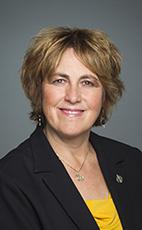Mr. Speaker, it is always a pleasure for me to rise in this House on behalf of the good people of Algoma—Manitoulin—Kapuskasing.
I have two petitions to table. The first petition is from people from Hearst, Dubreuilville, White River, Echo Bay, Wawa, Richards Landing, Hawk Junction, Elliot Lake and Sault Ste. Marie.
The petition is in support of public, universal and comprehensive pharmacare for all. The petitioners note that right now, one in 10 Canadians cannot afford their prescription medication under the current system that prioritizes drug companies' bottom line. If we replace our current system with single-payer pharmacare that benefits everyone, the country will save $4.2 billion each year. The petitioners add that Canada is behind the times, as we are the only OECD country with a universal health system that does not cover prescription drugs.
They point out that implementing a universal pharmacare program will give Canadians collective buying power that will lower the cost of drugs and health care. People could therefore feel more secure about their health in the future.
The petitioners are calling on the Government of Canada to eliminate this oversight in the health care system and bring in a public universal and public comprehensive pharmacare plan.

